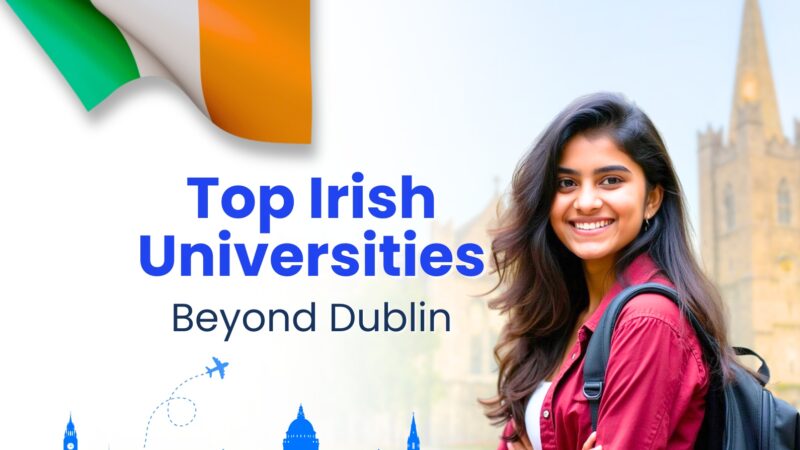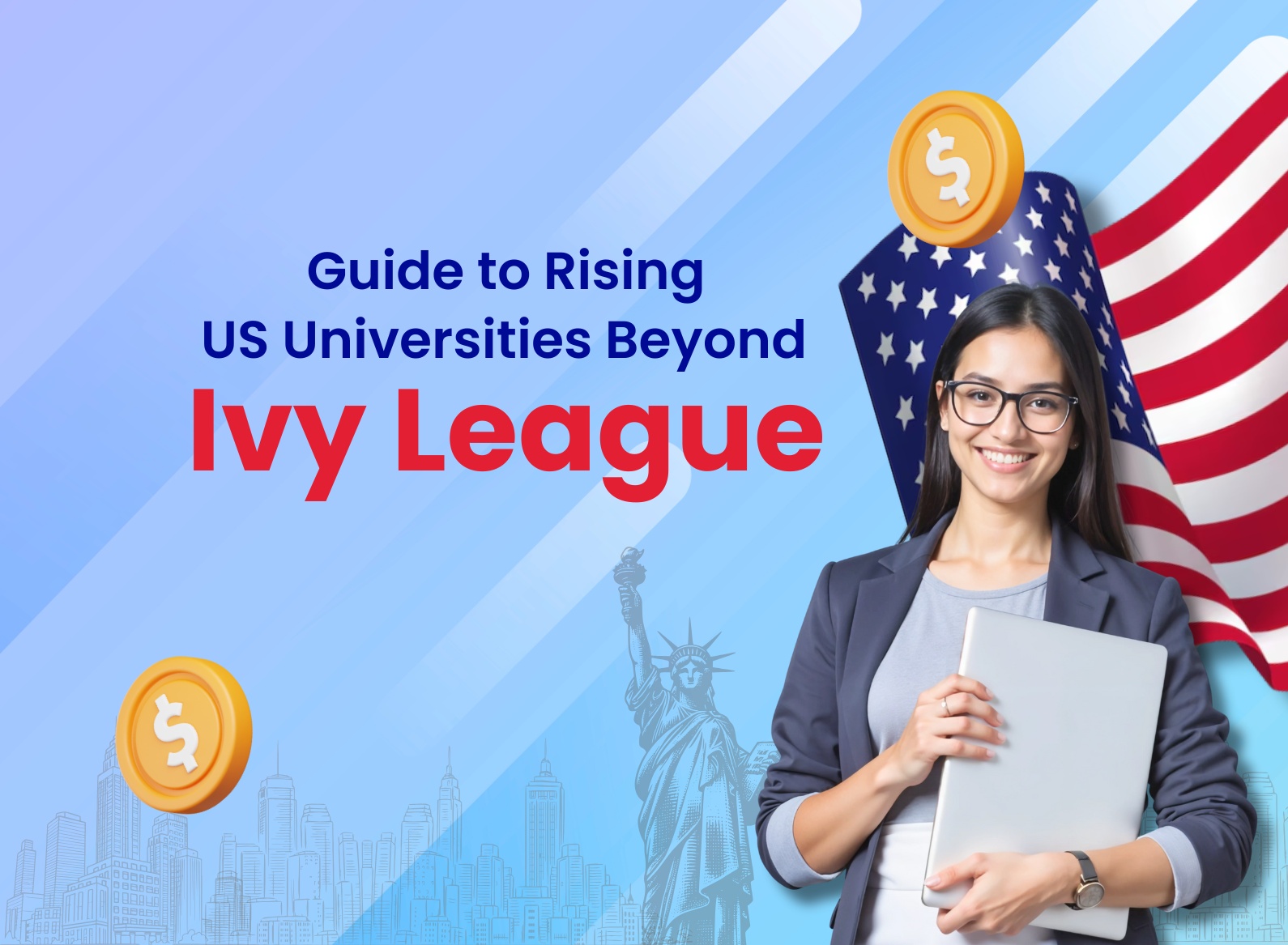
How Should an International Student Choose the Best University for Education Abroad?
In this article
- Why Choose the Best University for Higher Education?
- Importance of Funding When Choosing Your Study Abroad Program and University
- Evaluate Academic Fit, Not Just Rankings
- Connecting With International Student Services for Insights About the University
- Get Alumni and Peer Recommendations When Choosing a University Abroad
- Understand Visa Policies & Post-Graduation Work Options
- Final Thoughts
- Frequently Asked Questions
Choosing what to invest in your future as an international student is an exciting and, at the same time, a very complicated process, one that has the weight of academic, personal, financial, and cultural implications.
What really counts is way more than ranking ladders or flashy brochures–it is about matching institutional attributes with your ambitions, values, and goals in life. The contemporary international environment presents promising alternatives in the form of the ever more appealing affordability and immigration prospects in Canada to the European institutions with their unique teaching approaches and multicultural experience.
By acknowledging nuanced factors—such as academic fit, support systems, career pathways, and visa policies to Study Abroad —you empower yourself to make a choice that is grounded in both wisdom and purpose.
Tailored Loans. Trusted Partners. Total Support.
Why Choose the Best University for Higher Education?
Academic reputation undoubtedly matters—but the nuance lies in matching the program’s substance to your aspirations, rather than its overall brand. Well‑known rankings like QS or ARWU highlight research prowess and global standing, yet a top Universities to study Abroad l may not offer strengths in your field or the teaching style you prefer.
Instead, delve into subject‑specific rankings, faculty profiles, research facilities, and industry partnerships. For instance, a specialized institution offering strong research labs and hands‑on learning in your intended discipline may provide more real‑world value than a more prestigious but generalized university.
A well‑written curriculum aligned with your career goals, with opportunities for internships or co‑op programs, enhances tangible outcomes.
Importance of Funding When Choosing Your Study Abroad Program and University
Affordability remains a vital pillar, encompassing not only tuition but also cost of living, available scholarships, on‑campus employment, financial aid, and lending options. Many international students overlook living expenses such as rent, food, transport—and these can become substantial burdens later on.
Investigate universities that offer need-blind admissions or financial packages for international students. For example, a select few U.S. institutions, including MIT, Harvard, Yale, Princeton, and others, extend full demonstrated-need aid to international applicants. In contrast, numerous universities offer inherently lower tuition or government‑led Overseas Education Scholarships —France, for instance, draws over 400,000 international students partly due to its low fees and quality offerings
You can also choose study abroad loan options and explore scholarships to fund your higher education.
Evaluate Academic Fit, Not Just Rankings
While global rankings like QS, ARWU and U.S. News give a snapshot of reputation, they don’t guarantee the best experience for your major or learning style. Instead, drill down into:
- Curriculum and specializations
- Faculty credentials
- Research, internships, and hands-on learning
- Graduate employability
For example, a smaller university not high on rankings may offer personalized attention and strong career placement in your field—sometimes a better fit than a big-name school.
Connecting With International Student Services for Insights About the University
Support services and campus life shape your well‑being and integration, especially when you’re navigating a new country. International student services—including orientation programs, visa assistance, language and academic support, mental health counseling, housing aid, and social programming—can make or break your daily experience.
The richness of campus life—clubs, student groups, volunteering opportunities, or a theatre society—brings friendship, comfort, and belonging to what could otherwise feel isolating. Cities that rank high as “best student cities” like California, Melbourne, Sydney, London, and Munich are known not only for their universities but also for vibrant student cultures and international experiences.
Click. Apply. Get Admitted. It’s That Easy.
Get Alumni and Peer Recommendations When Choosing a University Abroad
Authentic preview of everyday life, academic intensity and quality of support. Prospective or current student testimonials, alumni profiles, forums, virtual fairs, and campus tours provide real-life experiences about daily living, academic intensity and support quality. Such voices frequently expose truths about institutional marketing: the actual study workload, social atmosphere, housing issues and local culture.
To help visualize this, here’s a comparative table summarizing key decision factors:
| Factor | What to Evaluate | Why It Matters |
| Academic Fit & Ranking | Subject‑specific reputation, faculty, research, industry links | Ensures your field is strong and aligned with your goals |
| Cost & Financial Aid | Tuition, living costs, scholarships, need‑blind policies | Balances affordability with long‑term financial health |
| Support & Student Services | Visa help, counseling, housing, clubs, multicultural programming | Supports well‑being, belonging, and academic success |
| Career Opportunities & Work | Internships, work permits, post‑study visas, alumni networks | Enhances employability and career launch readiness |
| Cultural & Environmental Fit | Teaching style, social norms, location, student city vibe | Affects your comfort, adaptation, and overall experience |
| Peer Feedback & Insights | Student testimonials, tours, fairs, forums | Reveals authentic, lived experiences beyond promotional materials |
Understand Visa Policies & Post-Graduation Work Options
It is not the value of the university that can be achieved but where you can go with the Study Abroad degree after that. Check:
- Student visa rules
- Part-time work rights during study
- Post-study work visas or residency pathways
Those institutions with powerful international offices can guide through this complicated landscape.
Final Thoughts
This decision not only determines what you will major in but also the life that you will be living as well as the way you will be viewing the world. When making a choice on purpose- considering such aspects that help you achieve your desired objectives- you precondition a highly enriching global school life. You have time, think, research and the right university that suits you will shine, or take help for the same from Study Abroad Consultants.

Frequently Asked Questions
How important are university rankings when selecting a school abroad?
Rankings themselves (particularly of global reputation or research strength) may provide useful access points, particularly to subject-specific excellence, teaching quality, or student experience, although they tend to obscure subject-specific excellence, teaching quality, or student experience. Prioritize fit over brand.
Can I work while studying, and how do post‑study work visas differ across countries?
Many countries allow part‑time student work (around 20 hours/week), but policies vary. Nations like Canada, the UK, and Australia often offer post‑study pathways. European options differ by state—Germany or France may allow job‑seeking permits for up to one year, while the UK Graduate Route lasts two years.
Are there universities that waive tuition or offer strong financial aid to international students?
Yes. A few U.S. universities (e.g., Harvard, MIT, Yale, Princeton) are need-blind for international students and meet full demonstrated need. Additionally, countries like France offer affordable tuition at public institutions.
What support services should I look for at a university to help me adjust?
Look for robust international student services—orientation, visa and immigration advising, academic and language support, mental health resources, housing assistance, social events, and post‑graduation planning services.
How can I get an authentic sense of what student life is actually like?
Attend virtual campus tours, join current‑student forums, follow social media student ambassadors, participate in webinars or fairs, and read alumni stories. Real voices often reveal the culture, support gaps, and daily rhythms better than promotional materials.
Book A Free Counseling
Related Blogs
Want to connect with
Our Experts?
We provide keep one to one counselling to
Study Abroad Aspirants









